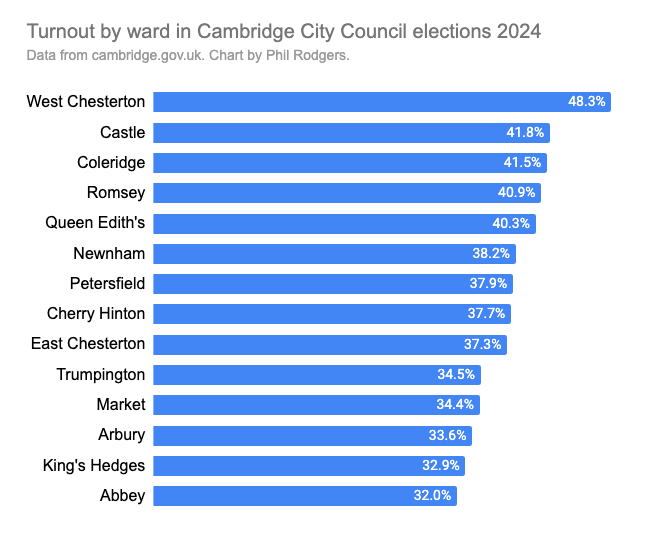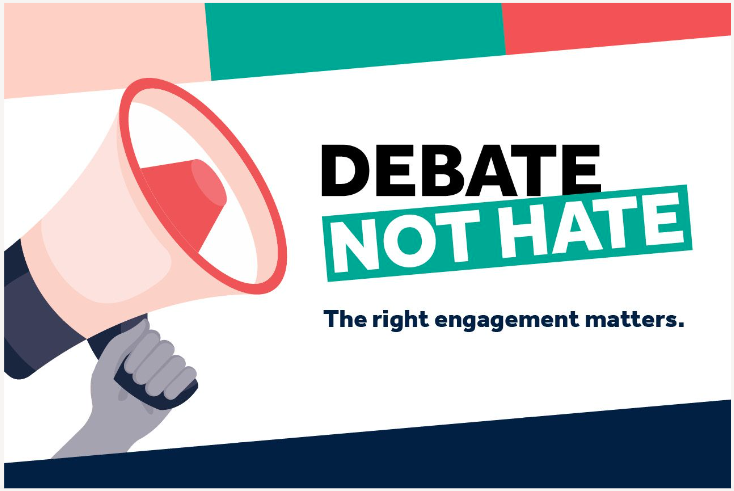You don’t have to stand for election to help strengthen democracy – there is a great deal that the public can do. And it does not involve getting a high profile either.
In case you missed it, The King has accepted the Prime Minister’s recommendation to dissolve Parliament and commence arrangements for a general election. See Parliament’s notice here.
Listening to the full council speeches in The Guildhall today, I came away with the sense that getting my name on the ballot paper would be many steps too far – something I alluded to in my previous blogpost. Furthermore, the controversial proposals involving Donald Insall Associates to demolish the only 1930s Art Deco cinema building of its type in Cambridge reminded me of the huge risk that I’d end up ranting at any public debate and achieving nothing positive. (It’s a symptom of exhaustion I get).
Organising local public debates / formal hustings
We moved very quickly on the Queen Edith’s Community Forum. We’ve booked in a provisional date of 24th June 2024 at St John the Evangelist Church on Hills Road (opposite Homerton College). I’ve created a FB event here for those of you who need a reminder.
Above – further details will follow for the provisional booking
I’m not going to post a vague list of ‘things you can do’ that few people actually carry out. In part because it involves too much thinking and self-motivation to get to the starting point for any of them.
There will be an almighty squabble as different pressure groups and business groups try to get all of the candidates to come to their event.
Having followed the previous three general elections in and around Cambridge more closely than most other people, I’ve found that there are a few things that we need to get rid of in order to maximise the number of voters who can get the chance to meet the candidates face-to-face.
Business and industry hustings
I’m not a fan of closed hustings where only the top two or three candidates get invited to ‘off the record’ discussions with ‘key influencers’ and the like. Institutions do not have any votes. People do. There is a very strong public interest in having any questions put by people representing institutions and vested interests being made public. This deals with the risk of candidates making ‘off-the-record’ commitments or comments that may contradict assurances they have given to public audiences. Furthermore, it enables the electorate and the candidates not invited the chance to scrutinise those institutions.
Large pressure group hustings
The various environmental campaign groups in Cambridge got together to organise a joint hustings at Anglia Ruskin University for the 2015 General Election. You can watch the video playlist here. This is a very good example of how groups can work together to cover overlapping themes. The problem was that the lack of central co-ordination in event organisation meant that most of the venues were in central Cambridge, and not all of them were easily accessible or on public transport routes. (For those of you interested in which campaign groups are out there, see Cambridge Resilience Web as a starting point. Alternatively see Cambridge CVS here)
There’s always the risk of ‘middle class campaigning elbows’ pushing others out of the way because their individual cause is more important than others. Understandable perhaps if you are a charitable organisation facing growing demands for your services in the face of declining donations. On top of that, there is the riposte to campaigning charities to move out of the charity sector and into the political sector. It’s one thing calling for a political party in government to do something, but quite another to be inside that political party being responsible for delivering it – whether minister or councillor.
Getting a fair geographical distribution of venues
Cambridge City Council’s map of community venues is here

Above – from Cambridge City Council. Can hustings organisers ensure that events are hosted across our city, and not just in a handful of places?
Note: Boundary changes mean that Cherry Hinton is now in a massively-changed South Cambridgeshire constituency
This means that a critical mass of our city (inside of Cambridge City Council’s boundaries) does not fall into the parliamentary constituency of Cambridge. As the city’s population grows, it will only be a matter of time before more council wards are hived off, and/or the existing constituency is split into two – most likely with either the River Cam or the railway line being the dividing line. Furthermore, this also means that the University of Cambridge will have its member colleges spread across ***three constituencies*** for the first time since the abolition of the University seats by Clement Attlee’s Labour Government. Girton College is in the St Neots & Mid Cambs seat, Homerton stays within South Cambridgeshire – the latter having rotated round anti-clockwise to cover the southern edge of the county, while the rest stay in the city.
How to organise a hustings?
See Chris Rand’s guide from 2016 here – and also note the guidance from the Electoral Commission here. This matters because if you only ask a select few of the candidates without good reason, those candidates and their agents may have to include the event as an election expense. (See Selective Hustings here)
You don’t have to be the organiser – but having even a couple of extra people helping out on the day can be a huge blessing for those doing the organising
Why? It’s crowd control for a start. Furthermore, it’s crowd control where you are dealing with dozens of people – possibly more, who are unfamiliar with both venue and arrangements.
David Dimbleby’s masterclass in Cambridge back in 2013
In the olden days when Question Time came to the Guildhall, I managed to get a ticket and went along. (See my write-up here). Sadly, someone else didn’t make it into the hall.
Above – Oh the shame!
We all mingled in the small hall not really knowing what was going on – there was a strange tension in that room. Then David Dimbleby walked in and in a few sentences told everyone what was going to happen, that everything was going to be alright, and that was that. The tension evaporated.
A few years later at the first Mayoral elections in 2017, the Rev Bruce Waldron of Sawston Free Church gave a very good example of how to ease the tension and manage expectations at the start of events not just for the audiences, but of candidates too. You can watch the video here.
Having someone at the entrance of a venue welcoming people in and pointing them in the right direction makes a huge difference. Even more so if they have something that designates them as a volunteer/helper (such as the same brightly coloured t-shirt).
Reporting and tech things
This is what I spent much of the second half of the 2010s doing for anyone who asked. Over 1,400 videos and a decade later…
At the time this enabled the local democracy reporters and local government correspondents to cover multiple events that often clashed. On a number of occasions they would write up articles for publication in the print press based on the video footage that they had filmed. Remember this was pre-CV19 and at the time few councils had suitable audio-visual set ups. Fortunately I no longer have to worry about filming council meetings!
On top of this I and others would often live-blog or live-Tweet who was saying what at the events. Again, it helped put things on the public record and help keep more residents updated. On some occasions, we were even able to put questions coming in remotely to those on the panel. I dare say that in the mid-2010s this was more effective than it is today given how the social media platforms have become gamed by their owners for commercial rather than social gain. However, in my view having the video and/or audio of who said what can be really important.
I would like to see some general election hustings organised in residential areas that have the highest poverty/multiple deprivation indicators, and the lowest turnout rates in council elections.
The graph below is courtesy of Phil Rodgers

Above – data from Cambridge City Council
The bottom-three wards in terms of turnout are also three of the most economically-deprived not just in Cambridge but in Cambridgeshire too. Therefore I call on any of the ‘town’ societies to consider organising a general election hustings in Abbey, Arbury, and/or King’s Hedges wards.
In the case of Arbury, there is the recently-opened Meadows Community Centre with its large hall that would be suitable for such an election debate. Again thinking of accessibility, it’s worth considering working with the venue to organise:
- Crèche facilities
- Neighbourhood publicity
- Format – eg not having a BBC Question Time-style event but one where the people attending are split into groups that correspond with the number of candidates, and rotating the latter every 15-30 minutes. That ensures those who are uncomfortable speaking in front of large audiences are able to raise whatever issues they want to with each candidate. Furthermore, everyone benefits from multiple shared conversations rather than one speaker at a time in a room with over 100 people in it.
I’ll be writing more on how to ensure as many people as possible get to meet the candidates face-to-face, and how those that want to can become more familiar with the election essentials (some of which may surprise you!)
In the meantime:
- Register to vote if you haven’t already
- Apply for free Voter ID if you need to
- Find out which parties have selected candidates where you live, using your postcode via https://whocanivotefor.co.uk/
If you are interested in the longer term future of Cambridge, and on what happens at the local democracy meetings where decisions are made, feel free to:
- Follow me on Twitter
- Like my Facebook page
- Consider a small donation to help fund my continued research and reporting on local democracy in and around Cambridge.
